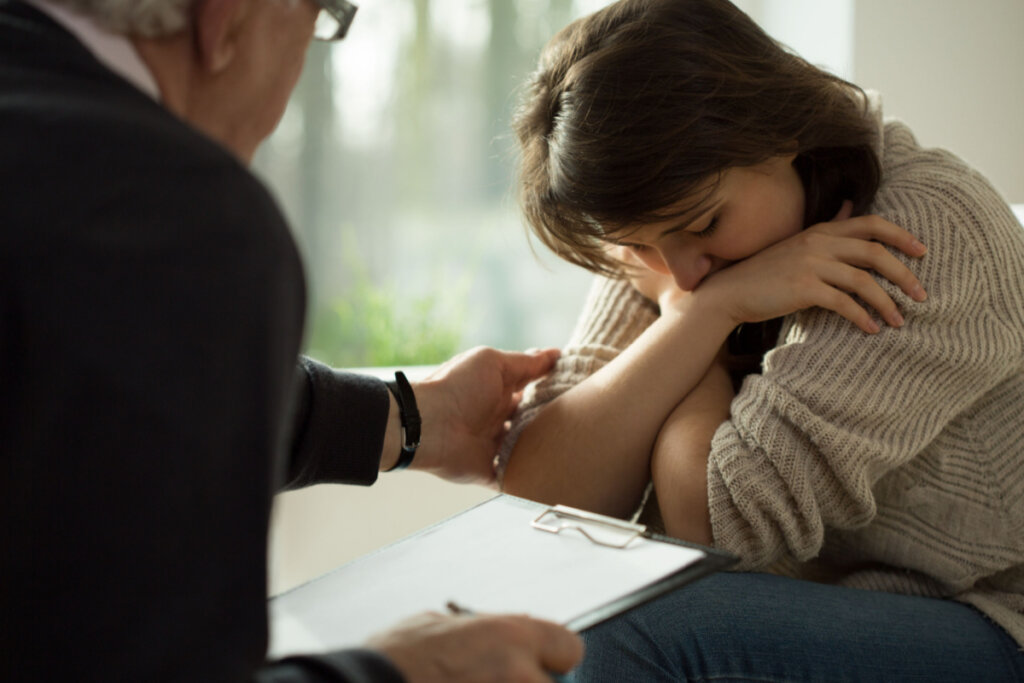What to Do if You've Stopped Trusting Yourself


Written and verified by the psychologist Valeria Sabater
When was the last time you told yourself to quit because you’d likely fail? Sometimes, this isn’t too harmful. After all, it takes courage to know when to stand back from something. However, be careful, because if you keep doing it, it can be harmful. In fact, a lack of self-confidence is like a thorn in your side that, once stuck, is really difficult to remove.
The way you feel about yourself defines everything around you, including the goals you achieve. Without it, without the magic of self-confidence, every dream slips out of your hands, and the whole world trembles under your feet. You doubt your decisions, relationships, and even your ability to face difficulties.
If you’re stressed about the importance of caring for and safeguarding your self-esteem, you might forget about your self-confidence. While this competence doesn’t define your ability to succeed in all areas of life, it does refer to the certainty that, in the face of any challenge or circumstance, you’re able to give the best of yourself.
However, what happens when this extraordinary value is missing or weakens? Let’s find out.

Be careful, if you stop trusting yourself, everything will fall apart
In 1971, Abraham Maslow published the book, The Farther Reaches of Human Nature. In this book, he explained that in each of us there’s an innate potential for self-realization. However, not all of us achieve it because of what he defined as the Jonah complex. In other words, despite knowing that we have values and skills, we don’t dare to put them into practice due to insecurity or fear of failure.
Maslow also mentioned another factor that can stop you from trusting yourself. He said that, sometimes, the environment acts by clipping your wings and weighing down your self-esteem and self-confidence. In fact, your upbringing, education, and even certain relationships can make you doubt yourself.
Added to this is another fact. There are times when everything goes wrong, you experience a string of failures, and in the end, your disappointment is so profound that your self-confidence vanishes. While you can probably deal with this experience, you must be careful. Because if you continually struggle to trust yourself, you’ll suffer greater amounts of anxiety and psychological suffering.
The consequences of this psychological wear and tear are immense.
Feelings that arise with self-doubt
The first feeling that emerges when you stop trusting yourself is unworthiness. You stop feeling valid in almost any area of your existence: work, emotional, and even social. Moreover, if you don’t trust yourself, you don’t trust others either. Furthermore:
- You doubt yourself in everything you do, try, or think.
- You feel inferior. In fact, you compare yourself with everyone around you and always feel at a disadvantage.
- You experience apathy, and discouragement, and are unable to enjoy yourself. The desire to set yourself new purposes is also extinguished.
- You lose the positive image you have of your own self, the one that pushes you toward the achievement of your goals and objectives. When this fails, you stop feeling whole and connected to what surrounds you.
Excessive demand and fear of failure can also make you lose confidence in yourself. You must accept that in life it’s necessary to accept mistakes without questioning your worth and potential.

What to do to regain your self-confidence
Regaining self-confidence is as important as obtaining oxygen to breathe. Without this element, everything becomes blurred and you risk suffering a psychological disorder. For example, depression is built on a substratum in which self-esteem is absent. It means you stop trusting your own worth, potential, and strengths.
Don’t let yourself fail. Avoid it at all costs. Try and reflect on the following:
1. Heal what’s caused you to stop trusting yourself
What has caused you to lose confidence in yourself? Dimensions such as workplace harassment, long-term unemployment, self-demand, harmful relationships, or a chain of failures are usually behind this reality. Sometimes, undertaking an act of introspection and detecting what’s overshadowed your worth and confidence will allow you to act in the face of that reality.
In turn, clarify what you need to feel better about yourself. Having social support, making a change in your life, or setting simpler and more realistic goals can help.
2. Challenge your inner critic
What does your inner critic whisper to you every day? Make a record of it. Be aware of the inner voice that questions your worth and feeds you mistrust. Don’t validate it. Rationalize what you say to yourself and defy all devaluation by turning it on its head:
For instance, don’t tell yourself “I’m sure if I get that job I’ll soon be fired’ say “What proof do I have of that? I’ve never been fired from a job in my life.”
3. Accept that life involves knowing how to fail
Put aside your need to be perfect, do everything right, and be the best in every area of your life. After all, life also demands that you accept your mistakes and failures. However, this doesn’t have to put your self-confidence in check. You can learn from your mistakes and improve yourself with each experience.
4. Don’t let regret stop you from living
If you’ve failed at something, don’t let your feelings of regret restrict your will to live. If you’ve been wrong or your plans have fallen apart, don’t get bogged down in discouragement. Advance and regain confidence in yourself and continue conquering your dreams.
Don’t let the guilt or shame of having made a mistake dampen your hopes. You have a lot to conquer and you have great potential to achieve much of what you want.
All cited sources were thoroughly reviewed by our team to ensure their quality, reliability, currency, and validity. The bibliography of this article was considered reliable and of academic or scientific accuracy.
- Hajloo N. Relationships between self-efficacy, self-esteem and procrastination in undergraduate psychology students. Iran J Psychiatry Behav Sci. 2014;8(3):42-49.
- Maslow, A. H. (1971). The farther reaches of human nature. Arkana/Penguin Books.
- Uncertainty and stress: Why it causes diseases and how it is mastered by the brain. Progress in Neurobiology. 2017;156:164-188. doi:10.1016/j.pneurobio.2017.05.004
- Wiczorek R, Meyer J. Effects of Trust, Self-Confidence, and Feedback on the Use of Decision Automation. Front Psychol. 2019 Mar 12;10:519. doi: 10.3389/fpsyg.2019.00519. PMID: 30915005; PMCID: PMC6423180.
This text is provided for informational purposes only and does not replace consultation with a professional. If in doubt, consult your specialist.








